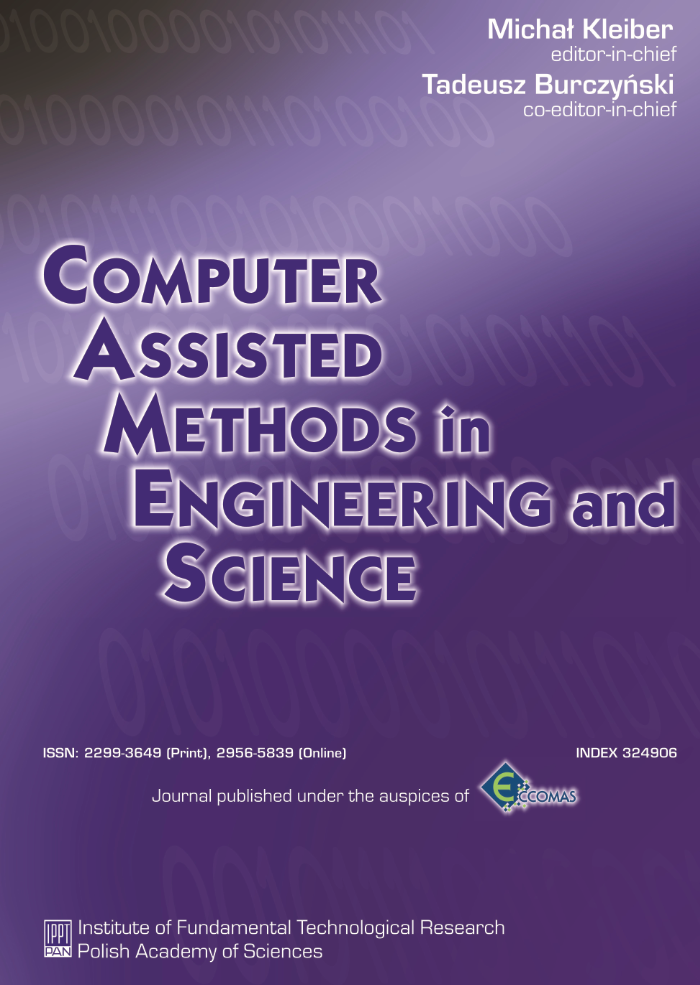Artificial relations between quantities at nearest nodes or cells and the Newton iteration procedure for the modified pressure correction method
Abstract
In this article a method for calculation of the finite-difference Navier- Stokes equations with a time step ∆t = h/uflow (h is the average cell's size, uflow flow velocity) at the minimal expenses of computer time is suggested. To realize the Newton-type iteration scheme and in order to avoid solving large-volume linear systems of equations for points k, which contain the variations of unknowns not only at the point k but also at points k' neighbouring with the point k, we replace the unknown relations between the variations of quantities at nearest points k and k' with artificial ones. Therefore the unknowns at the point k can be directly determined via equations at the point k and one does not need to apply complicated technique. The introduction of artificial relations between the variations of quantities at nearest nodes or cells and theuse of approximate equality c' ≈ -c relating geometric coefficients of both displaced and usual cells make it possible to obtain formulas for correct rates of change of the residuals of the equations. Consequently, only four global iterations and 4 to 5 (in average) inner pressure correction iterations for every global iteration suffice to provide the convergence.
Keywords:
heat transfer flows, approximation technique, Newton iteration method, pressure correctionReferences
[2] S.F. Araslanov, A.Kh. Gilmutdinov, M. Sperling. 3D Numerical Simulation of the Gas Flows in Transversely Heated Graphite Tube Atomizers (CD - proceedings of European Congress on Computational Methods in Applied Sciences and Engineering ECCOMAS 2000, Barcelona, 11-14 September 2000).
[3] P.J. O'Rourke, F.V. Bracco. Two scaling transformations for the numerical computation of multidimensional unsteady laminar flames. J. Comput. Phys., 33: 185-203, 1979.
[4] W.E. Pracht, Calculating three-dimensional fluid flow at all speeds with an Eulerian-Lagrangian computing mesh. J. Comp. Phys., 17: 132-159, 1975.
[5] E.S. Oran, J.P. Boris. Numerical Simulation of Reactive Flow. Elsevier Science Publishing Co., 1987.



